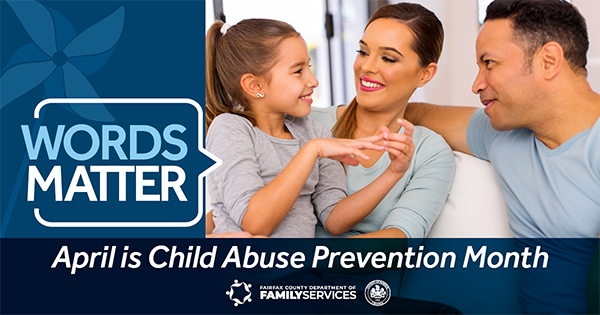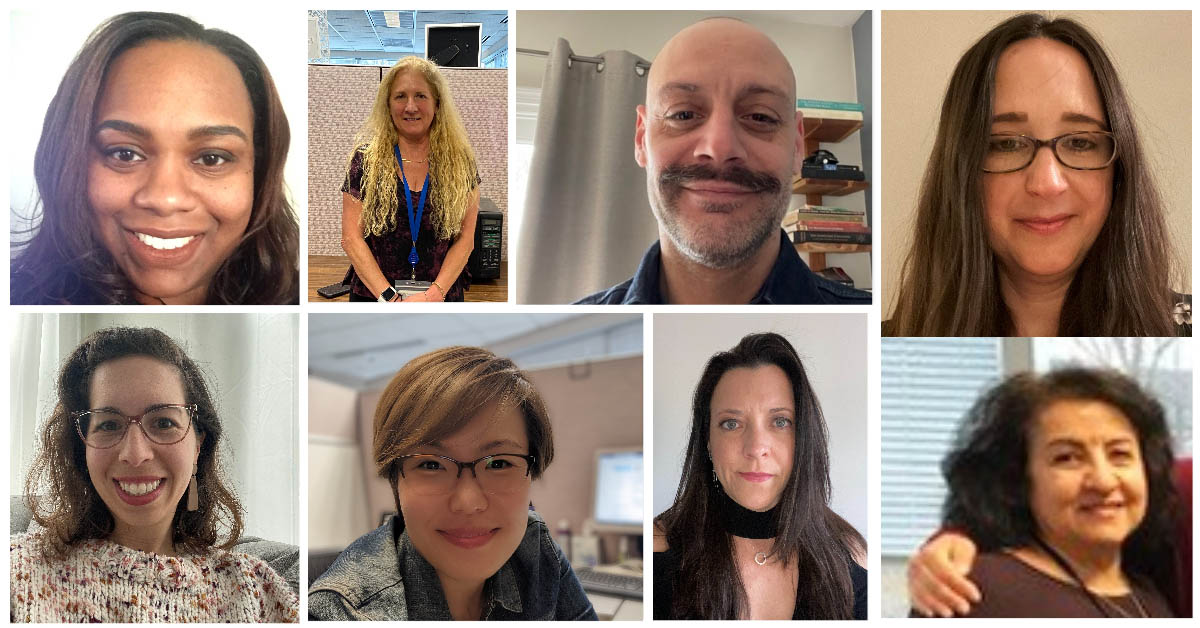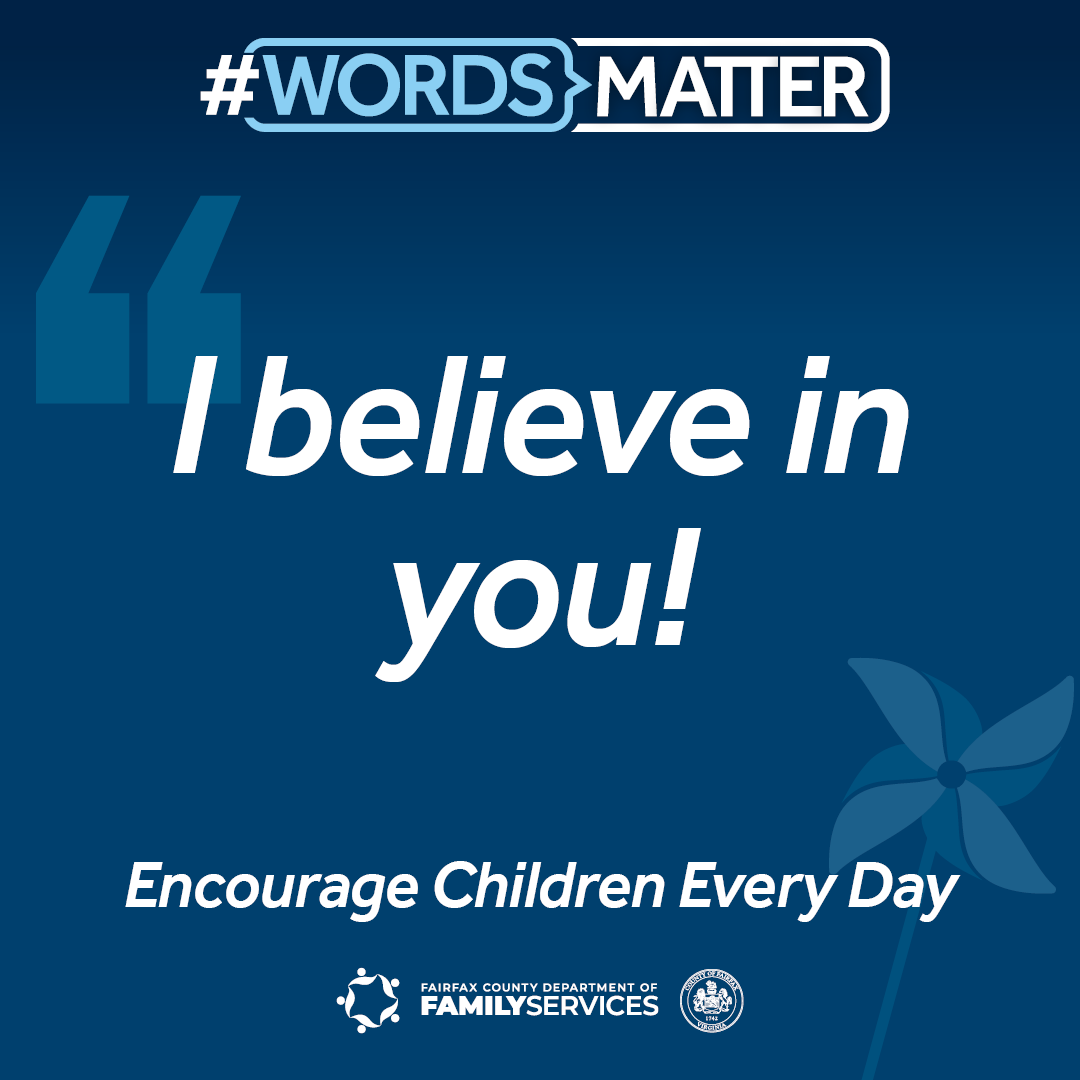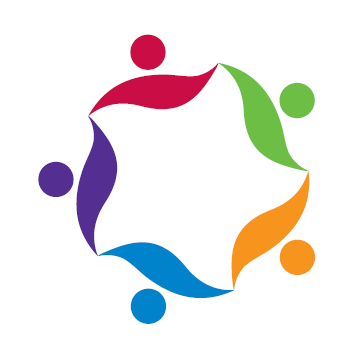
Welcome to the 2022 April issue of Foster Family News, a monthly newsletter for current and potential Fairfax County foster parents.
| Table of Contents | |
|---|---|
|
|
![]() Even though it may be tempting to forbid children and youth to use social media, this is seldom realistic. In addition, forbidding social networking may make it harder for youth in foster care to fit in with friends and relate to other teenagers in the community. Instead, foster parents should provide guidance and boundaries to help youth in their care use social media safely. Check out some tips.
Even though it may be tempting to forbid children and youth to use social media, this is seldom realistic. In addition, forbidding social networking may make it harder for youth in foster care to fit in with friends and relate to other teenagers in the community. Instead, foster parents should provide guidance and boundaries to help youth in their care use social media safely. Check out some tips.
 Visit our 2022 Child Abuse Prevention Month website. It is full of resources and services in our community that provide supports to keep families connected and children safe and healthy. This year, the Child Abuse Prevention Month theme is Words Matter. Learn more about our Wear Blue Day, the Pinwheel Challenge, the Fairfax County Board of Supervisor’s Proclamation, and other ways you can get involved to support families and promote an end to child abuse and neglect.
Visit our 2022 Child Abuse Prevention Month website. It is full of resources and services in our community that provide supports to keep families connected and children safe and healthy. This year, the Child Abuse Prevention Month theme is Words Matter. Learn more about our Wear Blue Day, the Pinwheel Challenge, the Fairfax County Board of Supervisor’s Proclamation, and other ways you can get involved to support families and promote an end to child abuse and neglect.
 We’re shining a spotlight on the work of the Foster Care Permanency Unit and their work covering the central region of Fairfax. In the midst of the challenges faced by a girl who entered foster care at 10 years old, COVID-19 created even more hurdles for workers to overcome. Staff and the foster family provided support and a sense of normalcy for this youth through it all. Check out this successful story.
We’re shining a spotlight on the work of the Foster Care Permanency Unit and their work covering the central region of Fairfax. In the midst of the challenges faced by a girl who entered foster care at 10 years old, COVID-19 created even more hurdles for workers to overcome. Staff and the foster family provided support and a sense of normalcy for this youth through it all. Check out this successful story.
 During Child Abuse Prevention Month this April, Join the Words Matter Challenge.
During Child Abuse Prevention Month this April, Join the Words Matter Challenge.
Parents and caregivers, be intentional every day to speak encouraging words that build up children’s sense of worth!
We’ve compiled a list of creative ways to say how much you care, and give you some new ideas for showing support for children.
 Ever get confused by all the unfamiliar terms used by staff in Foster Care and Adoption?
Ever get confused by all the unfamiliar terms used by staff in Foster Care and Adoption?
We've created a handy cheat sheet to help understand the acronyms and abbreviations that you may hear from time to time! Check it out!
 Child Abuse Prevention Month Wear Blue Day
Child Abuse Prevention Month Wear Blue Day
Tuesday, April 1
Show your support for children in our community by wearing blue and posting a #WearBlueDay photo on social media as port of this statewide initiative.
The Hope for the Journey Conference
April 9, 2022
9:30 a.m. – 3:30 p.m.
Fairfax Church of Christ
3901 Rugby Road
Fairfax, VA 22033
This event seeks to encourage and better equip parents and caregivers meeting the everyday needs of children impacted by adoption and/or foster care. Fairfax County will offer in-service training credit to foster parents who attend and provide documentation confirming full participation in the conference. Register online $15 per person or $25 per couple.
Spring Forward: Foster, Adoptive and Kinship Family Fun Day, sponsored by Formed Families Forward
Saturday, April 30
8:30 a.m. – 2 p.m.
Colgan Hall, George Mason University
Science and Technology Campus
10900 University Boulevard
Manassas, VA 20110
While parents, caregivers and professionals are enjoying sessions presented by experts in education and support of foster, adoptive and kinship families, children ages 4 and older will have a blast at GMU's outdoor experiential learning program "The EDGE." Early Bird rates are available through April 2. Register online $$
 The Department of Family Services supports families and county residents of all ages and stages of life – and that definitely includes foster parents and families! Like and Follow @FairfaxCountyFamilyServices for news, events, tips, stories, training opportunities and more.
The Department of Family Services supports families and county residents of all ages and stages of life – and that definitely includes foster parents and families! Like and Follow @FairfaxCountyFamilyServices for news, events, tips, stories, training opportunities and more.
Virtual Kinship Cafés hosted by the Department of Family Services’ Parenting Education Programs
First Wednesday and Third Thursday Monthly
6:30-8 p.m.
Kinship caregivers can talk with others who understand how difficult and joyful it can be raising a child for a family member or friend. Join us to discuss topics such as communication, self-care, and family dynamics. April 6 we'll dive deeper into discussing Managing Grief in Kinship Families (Part 2): presented by Susanne Maurer, LPC, Therapist, The Women’s Center. May 4 we’ll discuss Building Children and Teens’ Self-Esteem Through Praise. Register by email or call 703-324-7720.
Formed Families Forward Support Groups for foster and adoptive parents and kinship caregivers meet monthly: an in-person group in Fairfax on third Wednesday evenings from 7-8:30 p.m. and a virtual group on first Sunday evenings of the month 7:30-9 p.m. Register online.
Formed Families Forward Stronger Together Peer Support Group for teens and young adults (ages 14-22) meets twice monthly in person on Tuesday nights from 6:30-7:30 p.m. in Fairfax City. Register online.
Fairfax County Foster the Family Support Groups for foster and adoptive moms meet the third Monday of each month from 6:30 p.m.-8 p.m. in Falls Church. Childcare is provided. Register online or send an email.
Prince William County Foster the Family Support Groups for foster and adoptive moms meet the first Thursday of each month from 6:15-7:45 p.m. in Nokesville. No childcare is available at this time. Register online or send an email.
Each newsletter will include this section to help answer questions, spotlight the people who support foster families, highlight the donors and sponsors who generously give to foster care programs and activities and friendly reminders for foster families to sign-up for trainings.
 Question: What does DFS pay for college and/or training costs?
Question: What does DFS pay for college and/or training costs?




 What do you want to see in Foster Family News?
What do you want to see in Foster Family News?